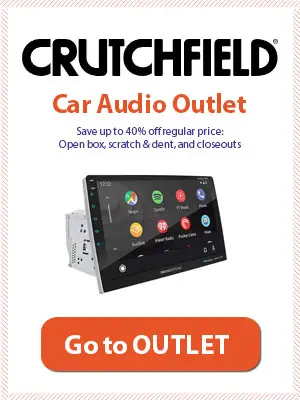Does your car sound like an army of aluminum cans marching down the street when all you want to do is hear that deep sound of the 808? I believe I have found a solution to your troubles in the form of bass blockers and crossovers. Let’s get into it!
Table of Contents
Filters
I believe a brief overview of the different types of filters that will be involved in bass blockers and crossovers should be in order.
High-Pass Filter – This filter allows frequencies above a designated cutoff frequency to pass through a speaker.
Low-Pass Filter – This filter allows frequencies below the designated cutoff filter to pass through a speaker.
Band-Pass Filter – This filter uses a combination of a high and low pass to allow the frequencies in between the two cut-off frequencies to pass through a speaker.
Crossover
A crossover acts as a filter that blocks unwanted frequencies from passing through a speaker or set of speakers with the use of one or multiple types of filters listed above. This is beneficial to the quality of sound because It allows us to send each speaker the specific frequencies that will sound best through it.
There are two types of crossovers (electronic/active and passive). An active crossover uses a digital signal processing chip to split frequencies. We don’t really have to worry about the technical aspects of a DSP chip, but I wanted to tell you what is inside this type of crossover.
This chip allows for the fine-tuning of a custom system of channels to the specific speaker of your choosing! These types of crossovers tend to offer only high and low pass filters, but due to the ability that it presents in regards to fine-tuning, it tends to be more pricey than the passive crossover.
The passive crossover is a little more mechanical than the electronic crossover because of its use of resistors, capacitors, and inductors to achieve the desired crossover to a speaker or group of speakers., This type of crossover is less expensive AND it offers great quality in the tweeter (treble) and mid-range from the jump! The filters can be large, so they are usually best for smaller speakers, but if you would like to use it for a woofer, then you would need large and heavy inductors for the power needed. Only low er frequencies would pass through the smaller filter.
Bass Blocker
If you made it this far, you are in luck because the more intricate of the two is out of the way! A bass blocker is exactly what it sounds like. In contrast to the crossover’s range of 3 different filter types, the bass blocker is only a high-pass filter that prevents low frequencies from damaging your speakers (see our tutorial on how to install bass blockers).
This is useful for speakers that were not really meant to produce bass. It offers an improved quality sound when more bass is present in the tweeter and mid-range. With bass blockers, say goodbye to car-rattling headaches and say hello to a serene listening experience at any volume.
